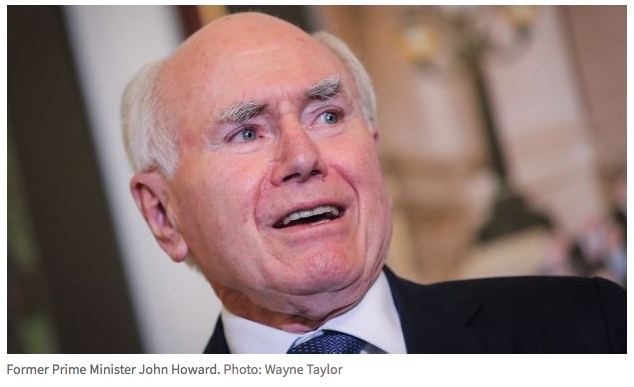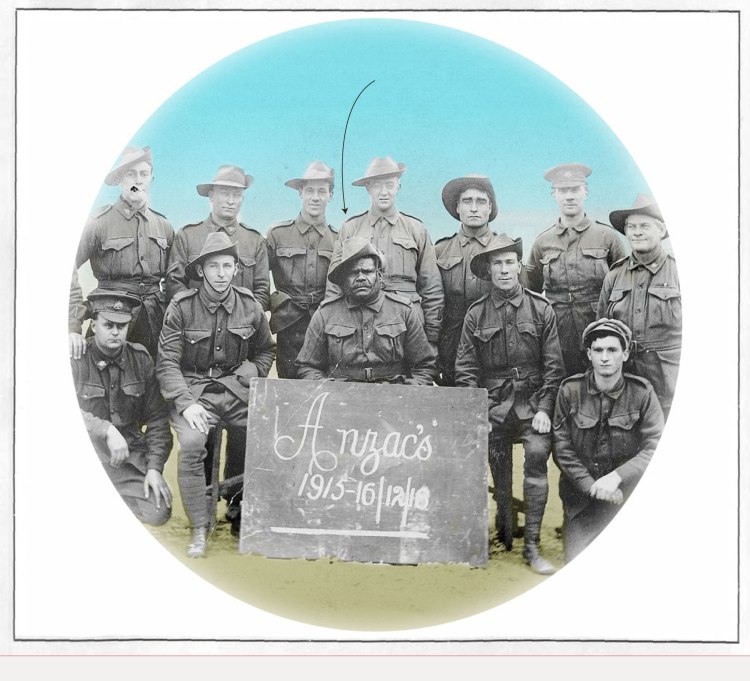
In the comment from today’s Herald republished below, Connor and Riemer express not simply their opposition to Howard’s being awarded an honorary doctorate by the University of Sydney (not ‘Sydney’ as they grandiloquently call it) but their offence in the name of ‘those of us committed to the ideal of universities as servants of the common good’ at this award being given to a racist, bigot and militarist.
They condemn the university management’s ‘tawdry and shambolic Realpolitik’ and write that ‘universities should be institutions that provide ongoing challenge (sic) to the terms of institutional power.’ Powerful words indeed but, in true academic style, hollow and hypocritical.
Universities in class-based societies such as Australia’s first and foremost are institutions for the propagation of the ideology of the dominant (capitalist) class, not, according to the myth, centres of abstract intellectual excellence.
The challenge should not be to ‘institutional power,’ it should be to class power – to the domination of the capitalist class and their ideology – to exposing and confronting their ‘system of belief delimited by interests’.
Connor and Riemer make no mention of this in their ‘principled’ posturing.
The management of the university is one aspect of universities as centres of capitalist ideology, the academics employed in them are the other – those who attend to the form and those who attend to the content.
For more than thirty years I have been utterly committed to understanding and exposing the influence of mysticism on Western culture. During those years I have been enrolled at the universities of NSW and Sydney.
I was told over and again by time-serving academics that I was wrong, that I didn’t know what I was doing. At the University of Sydney I was threatened going into my honours year. At the College of Fine Arts, the University of NSW I was refused supervision for three years even though I had been accepted into a research program.
Now that those stages of bourgeois ideology known as modernism and post-modernism have run out of steam, some of the ideologues of the bourgeoisie, on the lookout for the next ‘new flavour’ listened to me, refused to assist me and then took and began teaching those aspects they consider now safe of what they never dared to go near before.
On 21.04.15 I sent an email to the Chair of Philosophy at the university of Sydney about my dedication and experience over more than thirty years, involving both universities. I copied it to the vice-chancellor Michael Spence and to Kate McClymont (‘Australia’s most-awarded journalist’) on the Senate. The only reply I have received was one to acknowledge receipt, on behalf of the vice-chancellor.
The matter concerns not only myself – the treachery, hypocrisy and deliberate ignorance I have experienced at both universities from academics – but, particularly, the greatest failure in social and intellectual responsibility by generations of ideology-serving academics on this matter. The very things Connor and Riemer claim to uphold.
I have experienced the ruthless efficiency with which the same ideology Howard was such an unrelenting advocate for and the control of it is maintained by academic ‘servants of the common good’ – again, just as Howard claimed he was one.

Linda Connor and Nick Riemer, ‘Why “racist” John Howard doesn’t deserve an honorary doctorate,’ The Sydney Morning Herald, 29.09.16
Sydney University’s choice to award an honorary doctorate to John Howard is a decision to celebrate racism, bigotry and militarism. The award is unjustifiable in an institution claiming to serve the public good that says it is committed to rigorous standards of analysis and deliberation.
Along with many of our colleagues, we are appalled by the actions of the University Senate in making this award. That is why we are boycotting the graduation ceremony on Friday at which the doctorate will be conferred, and joining staff and students outside the University’s Great Hall in protest.
The university administration’s justification of the award does not withstand even the most rudimentary scrutiny. Along with contributions to economic management and Australian relations with China and Indonesia, the Chancellor, Belinda Hutchinson, has cited Howard’s gun law reform and leadership in East Timor as the reasons for the doctorate.
If arms and international relations are the question, Howard’s principal “achievements” lie elsewhere entirely.
What Howard will be remembered for in these fields is hardly his gun control measures or Australia’s role in East Timor. The latter, in any case, arguably had more to do with Timor’s gas reserves than it did with peacekeeping. Far more significant, both internationally and at home, was Howard’s crucial support for the 2003 invasion of Iraq. This illegal and unjustified war cost the lives of almost 25.000 civilians in its first two years alone. The recent Chilcot report puts the number of Iraqi deaths at 150,000 by 2009. Awarding Howard for his contribution to international relations is like awarding BP for its contributions to green energy. In honouring him, the University of Sydney does its bit to dampen the pressure for a Chilcot-style enquiry in Australia.
What will Howard say in his address at the graduation to the audience of students and researchers? That instinct is a better guide than science to public policy, or that politicians must not be “browbeaten by the alleged views” of climate scientists, as he told a London conference in 2013? That professional historians have got it wrong about the past and that he, without specialist training, is better placed to decide what should be taught? It is a singular irony that a politician contemptuous of science, whose government regularly attacked academics and researchers, should be accepting an honorary doctorate. It says even more that he is being offered one.
Sydney’s administrators have tried to deflect criticism by pointing to the frequency with which honorary degrees are conferred on former prime ministers. Exactly. It is the very regularity of the practice that is objectionable. The customary granting of honorary degrees to former politicians degrades academic distinction for political purposes. It says that political power, not an outstanding contribution to the advancement of society, is the determinant of the university’s recognition. Universities should be institutions that provide ongoing challenge to the terms of institutional power. Through the routine award of honorary degrees to prime ministers no matter what their record in office, they end up courting it.
Granting doctorates to ex-PMs sends a clear message: no matter what you have done in office, you can expect, as a former PM, to be feted by the academy. Follow the US to war on confected and untested evidence, plunging Iraq and the wider Middle East into chaos: honorary doctorate. Militarise social policy in the Northern Territory: honorary doctorate. Obstruct the UN declaration on the Rights of Indigenous Peoples, refuse to apologise to the Stolen Generation and exacerbate racial tensions: honorary doctorate. Ban same-sex marriage: honorary doctorate. Wage class-warfare against the union movement: honorary doctorate.
Universities’ responsibility to provide a source of rigorous independent analysis and expertise can only be discharged if they stand above the horse-trading of political influence and favour. This was exactly the principle at stake when La Trobe University tried to appease politicians by suspending Roz Ward, the Safe Schools program co-founder, earlier this year. In normalising honorary degrees for former PMs, universities signal they have no interest in maintaining a critical independence from political power.
It doesn’t take much wit or acuity to confront university managements’ rhetoric with their actual practices – which are often no more than a tawdry and shambolic Realpolitik. Nevertheless, doing so is essential. Words have meanings; we should hold university managers to the values they say they respect. Sydney management’s decision makes a travesty of the ideals it claims to uphold. These include critical thinking and problem solving, cultural competence, and ethics. In their foreword to the university’s current “strategic plan”, Michael Spence, Sydney’s VC, and the Chancellor, Belinda Hutchinson have listed “a deeply held commitment to challenging ordinary thinking, and a genuine desire to do good in the world” as two “extraordinary strengths” of the university.
The emptiness of these declarations is demonstrated by Howard’s award. Howard’s record in office expressed the opposite ideals. The Middle East and Indigenous social policy are two domains that call for the most delicate and reasoned consideration. Instead, Howard just sent the army in. In both cases, his rationales for doing so turned out to be spurious. This is the model our university is holding up to students and society.
Vocally opposing Howard’s doctorate is the only possible course of action for those of us committed to the ideal of universities as servants of the common good.
























